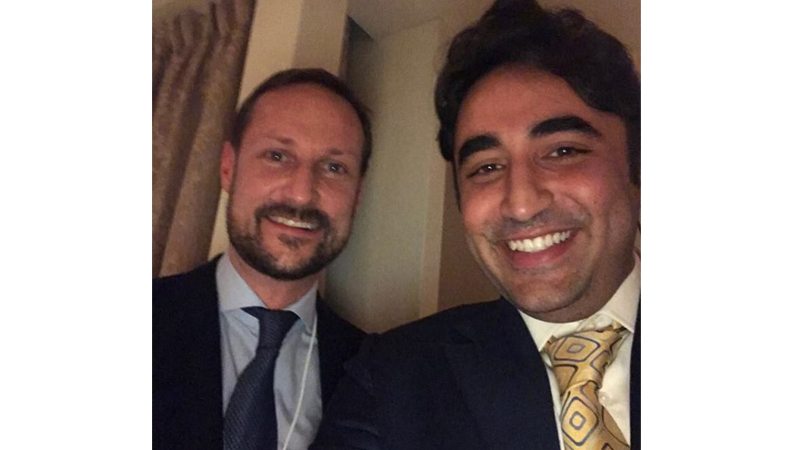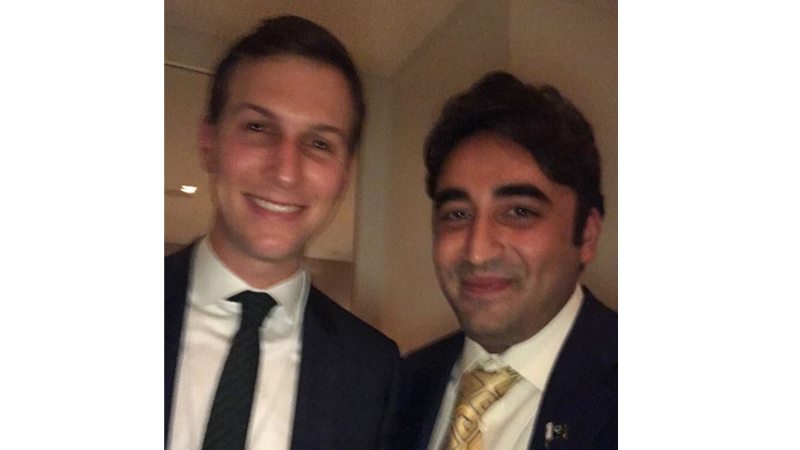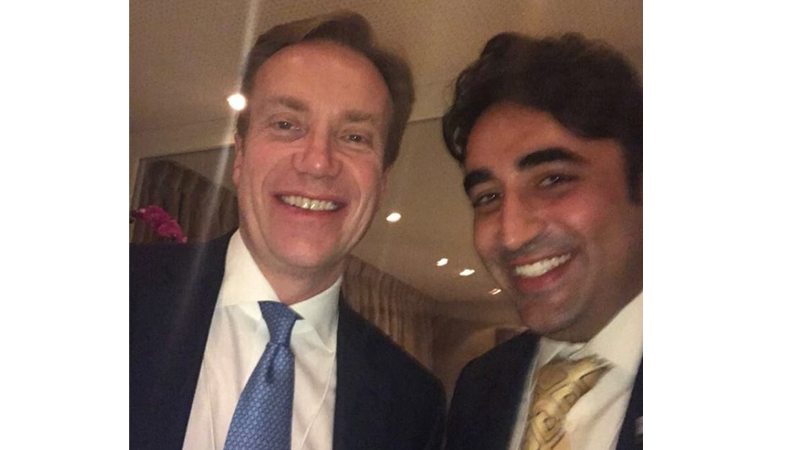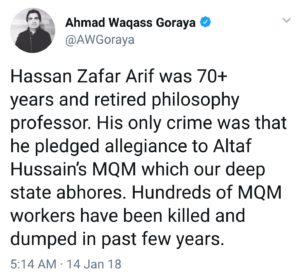Pakistan People’s Party Chairman Bilawal Bhutto Zardari concluded a successful trip to Davos, Switzerland where he attended the World Economic Forum’s (WEF) 2018 Annual Meeting accompanied by PPP vice-president Senator Sherry Rehman.
The chairman had a packed schedule of engagements for his WEF debut. He kicked off his day at a packed hall on BBC World Debate Davos with renowned names such as Joseph Kahn, managing editor of New York Times; Anna Belkina, deputy editor in chief of RT; and Jimmy Wales, co-founder of Wikipedia. The panel moderated by BBC’s Zeinab Badawi deconstructed the very real fake news and disinformation pose to democracies. The chairman’s views on fake news and politics provoked a fresh debate on the politics and fake news by both local and international media.
For their second day at Davos, Senator Rehman and Bilawal Bhutto attended a breakfast hosted by the Pathfinder Group for the Pakistani delegates. The chairman also led a session on countering violent extremism.
Later in the day, the chairman participated in WEF’s Instagram Project and gave his perspective on how to tackle the global rise of discrimination. He also emphasised on the need to develop a comprehensive set of climate solutions on an international level, to fight the threat of climate change.
29-year-old Bilawal was the only Pakistani invited to the young global leaders’ dinner hosted by Børge Brende, president of WEF, and Jared Cohen, the CEO of Jigsaw. The chairman met with other high-profile guests, including Jared Kushner, Prince Hussein bin Abdullah of Jordan and Haakun Magnus, Crown Prince of Norway.
The chairman concluded his trip with his first interview with the Indian media, which has gone viral in its strong, measured defence of Pakistan.
Bilawal Bhutto Zardari said that the big business models posed a threat to real journalism in Pakistan.
Discussing the concept of fake news, Bilawal said that fake news recently gained popularity primarily through US elections. However, it has existed for decades, he said.
Responding to questions raised during the discussion, Bhutto said: “When fake news is disseminated in Pakistan, it can have major issues – the point is to have the media come through as transparent as it can. Coming from a fragile democracy, attacking and demonising the media can have adverse effects.”
Bilawal said that there was no concrete way to ask who ran fake news in Pakistan. “They are far more commercialised, they push out their monetary interest. A lot of actors are involved in this especially commercial owners,” he said.

The PPP chairperson further stated that it was big business models and industrial giants who owned and ran media houses, which posed a high possibility of the news being biased.
On Western media’s propagation, he said: “Let’s not forget weapons of mass destruction in Iraq was fake news – we have to be able to sort of see that we don’t recognise our own fault. They pitched US intelligence narratives which turned out to be fiction.”

When asked about how much danger fake news poses to democracy, Bilawal said that big business models were a fundamental threat to democracy. “We have some of the most amazing, dedicated journalists in Pakistan, but with the big houses doling out cash potentially plaster real news with sensationalism.”
Bilawal maintained that self censorship and freedom of speech had to have a balance. “It is crucial to have authenticity and credibility even if the news comes ‘from the people by the people’ like WikiTribune. The journalists could get together, create authentic content, get driven and perhaps counter fake news better this way.”

“I’m more comfortable with something like that – we have a long history of dealing with distortion of facts. I personally don’t trust my state dealing with fake news. If the grassroots components are addressed, there could be a positive change.”
Bilawal doubled down on the fact that imparting education was not only advised, but imperative to help counter this issue. “I don’t remember being taught about sourcing, bias, research when I was studying. The generation today must also be taught how to identify fake news when they come across it.”
He conclusively stated that raising tribal and partisanship concerns was important. “Accepting the fact that fake news will be around for some time, empowering people can always lead to fruitful results in the future,” he said.












 The PPP chairperson further stated that it was big business models and industrial giants who owned and ran media houses, which posed a high possibility of the news being biased.
The PPP chairperson further stated that it was big business models and industrial giants who owned and ran media houses, which posed a high possibility of the news being biased. When asked about how much danger fake news poses to democracy, Bilawal said that big business models were a fundamental threat to democracy. “We have some of the most amazing, dedicated journalists in Pakistan, but with the big houses doling out cash potentially plaster real news with sensationalism.”
When asked about how much danger fake news poses to democracy, Bilawal said that big business models were a fundamental threat to democracy. “We have some of the most amazing, dedicated journalists in Pakistan, but with the big houses doling out cash potentially plaster real news with sensationalism.” “I’m more comfortable with something like that – we have a long history of dealing with distortion of facts. I personally don’t trust my state dealing with fake news. If the grassroots components are addressed, there could be a positive change.”
“I’m more comfortable with something like that – we have a long history of dealing with distortion of facts. I personally don’t trust my state dealing with fake news. If the grassroots components are addressed, there could be a positive change.”

